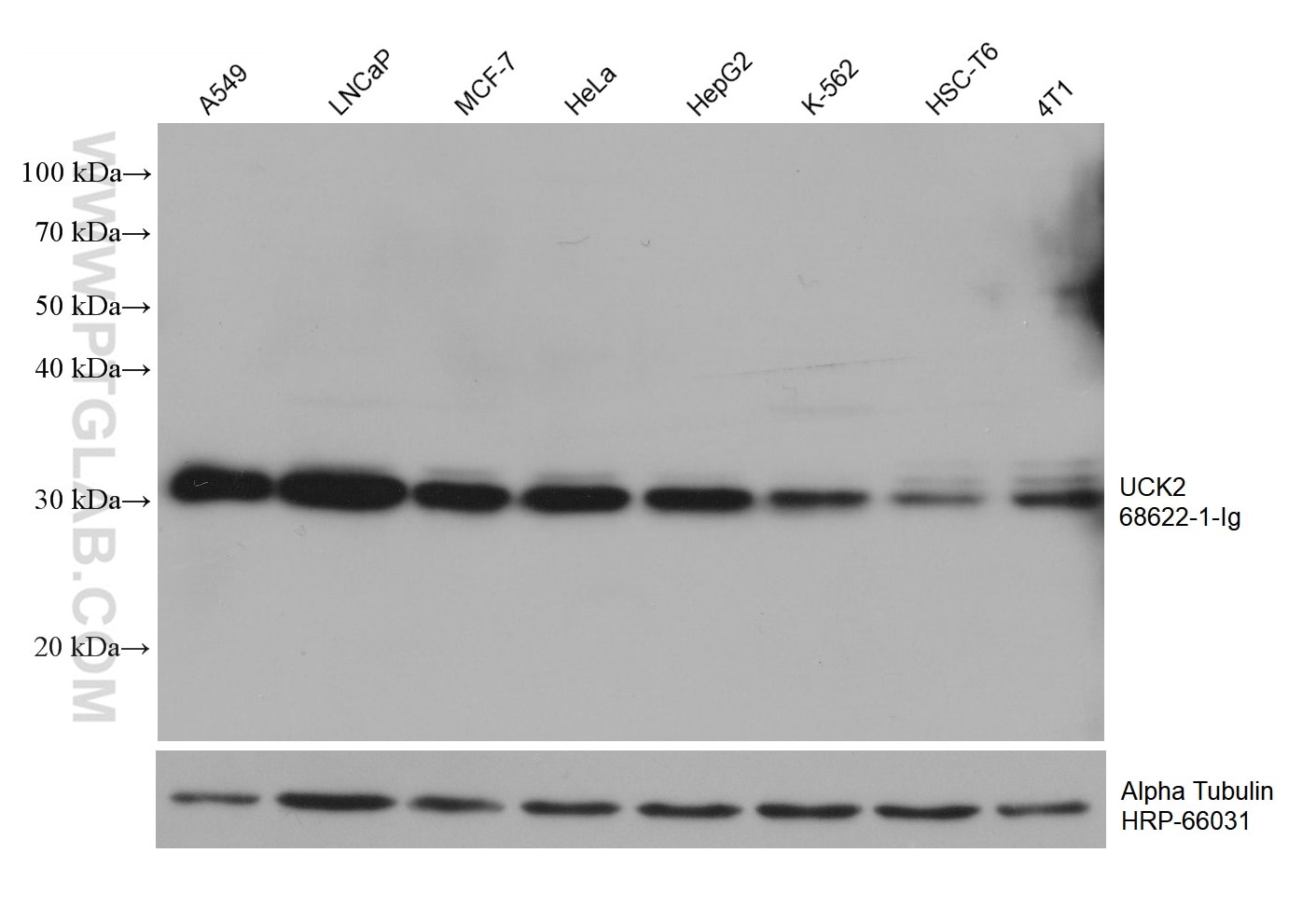Tested Applications
| Positive WB detected in | A549 cells, LNCaP cells, MCF-7 cells, HeLa cells, HepG2 cells, K-562 cells, HSC-T6 cells, 4T1 cells |
Recommended dilution
| Application | Dilution |
|---|---|
| Western Blot (WB) | WB : 1:5000-1:50000 |
| It is recommended that this reagent should be titrated in each testing system to obtain optimal results. | |
| Sample-dependent, Check data in validation data gallery. | |
Product Information
68622-1-Ig targets UCK2 in WB, ELISA applications and shows reactivity with Human, mouse, rat samples.
| Tested Reactivity | Human, mouse, rat |
| Host / Isotype | Mouse / IgG2b |
| Class | Monoclonal |
| Type | Antibody |
| Immunogen | UCK2 fusion protein Ag0782 Predict reactive species |
| Full Name | uridine-cytidine kinase 2 |
| Calculated Molecular Weight | 29 kDa |
| Observed Molecular Weight | ~30 kDa |
| GenBank Accession Number | BC002906 |
| Gene Symbol | UCK2 |
| Gene ID (NCBI) | 7371 |
| RRID | AB_3085314 |
| Conjugate | Unconjugated |
| Form | Liquid |
| Purification Method | Protein A purification |
| UNIPROT ID | Q9BZX2 |
| Storage Buffer | PBS with 0.02% sodium azide and 50% glycerol , pH 7.3 |
| Storage Conditions | Store at -20°C. Stable for one year after shipment. Aliquoting is unnecessary for -20oC storage. 20ul sizes contain 0.1% BSA. |
Background Information
Uridine-cytidine kinase 2 catalyzes the phosphorylation of uridine and cytidine to uridine monophosphate (UMP) and cytidine monophosphate (CMP), respectively. This is the first step in the production of the pyrimidine nucleoside triphosphates required for RNA and DNA synthesis. UCK2 belongs to the uridine kinase family and UCK have important roles for the phosphorylation of nucleoside analogs that may be important in chemotherapy of cancer.
Protocols
| Product Specific Protocols | |
|---|---|
| WB protocol for UCK2 antibody 68622-1-Ig | Download protocol |
| Standard Protocols | |
|---|---|
| Click here to view our Standard Protocols |



